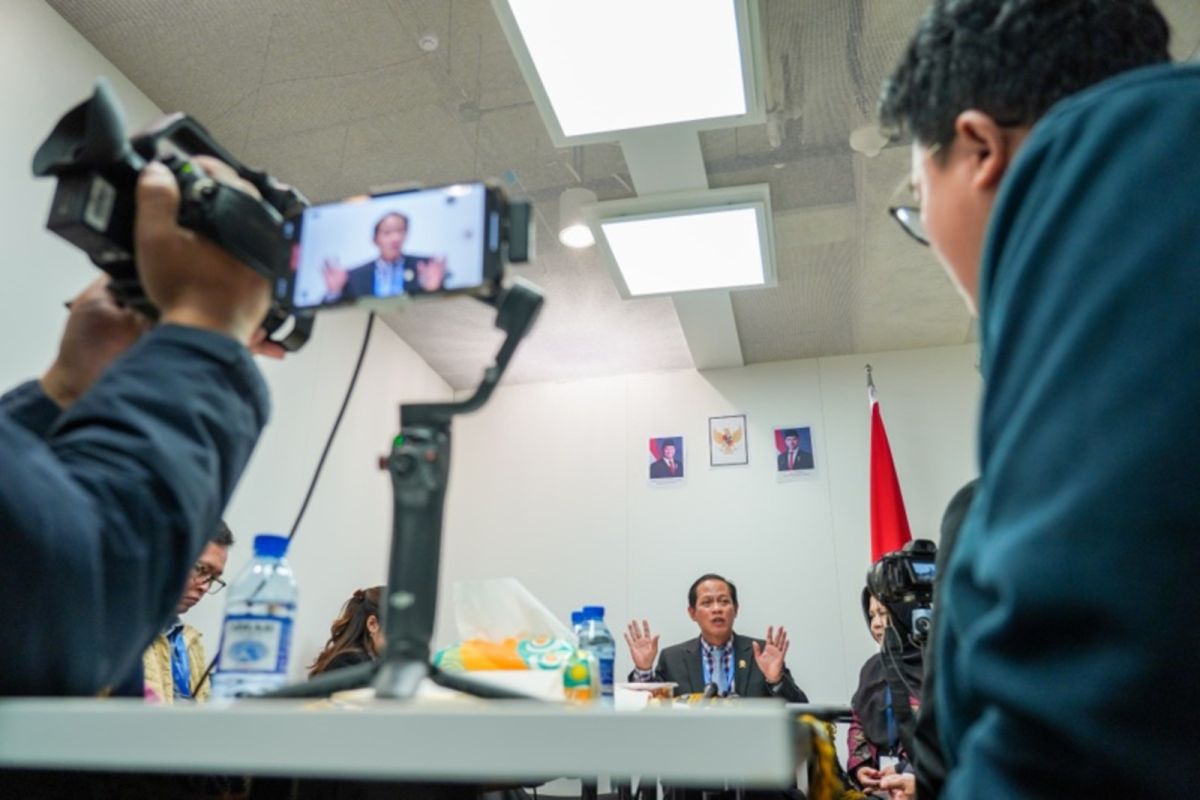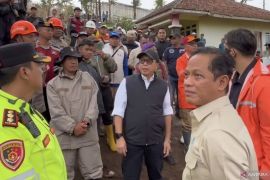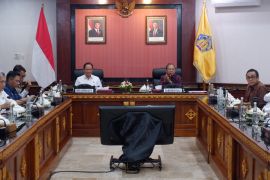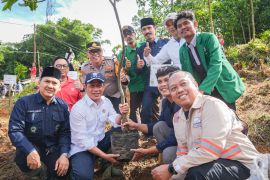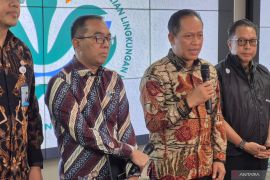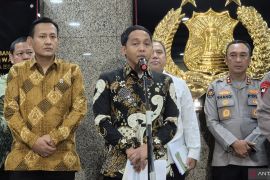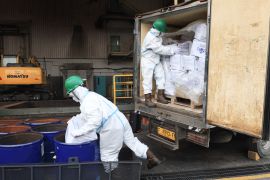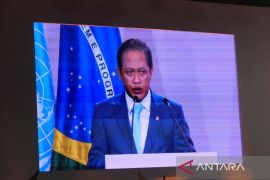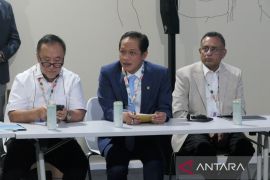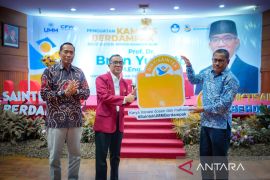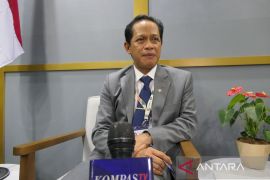"Indonesia's participation in COP29 is marked by a strong determination focusing on mutually beneficial partnership, not to depend on aid or grants," Nurofiq noted in a statement from his office on Friday.
He highlighted that Indonesia took firm steps in realizing the targets of the 2015 Paris Agreement ratified in 2019.
At the 29th UN Climate Change Conference (COP29) in Azerbaijan, Indonesia identified 19 important initiatives, comprising 14 aspects of negotiation and five forms of platform cooperation, to achieve more ambitious emission targets.
The Indonesian delegation attending the event in Baku, Azerbaijan, is committed to reducing greenhouse gas emissions and other sustainability efforts.
The delegation, led by the President's Special Envoy for Climate Change, Hashim Djojohadikusumo, also held various bilateral meetings and strategic discussions to strengthen diplomacy and international cooperation in handling the climate crisis, Nurofiq stated.
He noted that the COP29 negotiation process was indeed long. However, there are concrete steps in cooperation with several partners to increase mitigation and adaptation actions in Indonesia, including carbon trading.
Related news: Indonesia affirms commitment to Paris Agreement at COP29
The minister also highlighted the importance of real bilateral cooperation in reducing global emissions, including through transparent carbon trading, as stated in Article 6 of the Paris Agreement, especially regarding carbon credit trading.
One of the real forms of implementation is cooperation between Indonesia and Japan through the Mutual Recognition Arrangement (MRA) mechanism in the carbon trading cooperation.
The MRA, which was earlier announced to the international community at COP29, is the first bilateral cooperation with the MRA, guided by Article 6.2 of the Paris Agreement, Nurofiq stated.
"I emphasize that the role of the carbon market is to support the reduction of greenhouse gas emissions to achieve the Nationally Determined Contribution (NDC) and not for other economic goals," the minister pointed out.
According to Nurofiq, Indonesia continues to push for using renewable energy and develop certification schemes for carbon emissions through strict and standardized mechanisms, such as the Indonesian Emission Reduction Certificate (SPEI).
The government is also working on a clear roadmap for emission-contributing sectors to achieve certain emission limits and encouraging the forestry sector to develop carbon offset mechanisms, Nurofiq added.
"We are here not to ask for help but to offer partnerships, methodologies, and cooperation in reducing greenhouse gas emissions," he concluded.
Related news: Indonesia to explore carbon trading partnerships at COP29
Related news: Indonesia to lead green initiatives at COP29 in Baku, says minister
Translator: Prisca Triferna V, Resinta Sulistiyandari
Editor: Yuni Arisandy Sinaga
Copyright © ANTARA 2024
